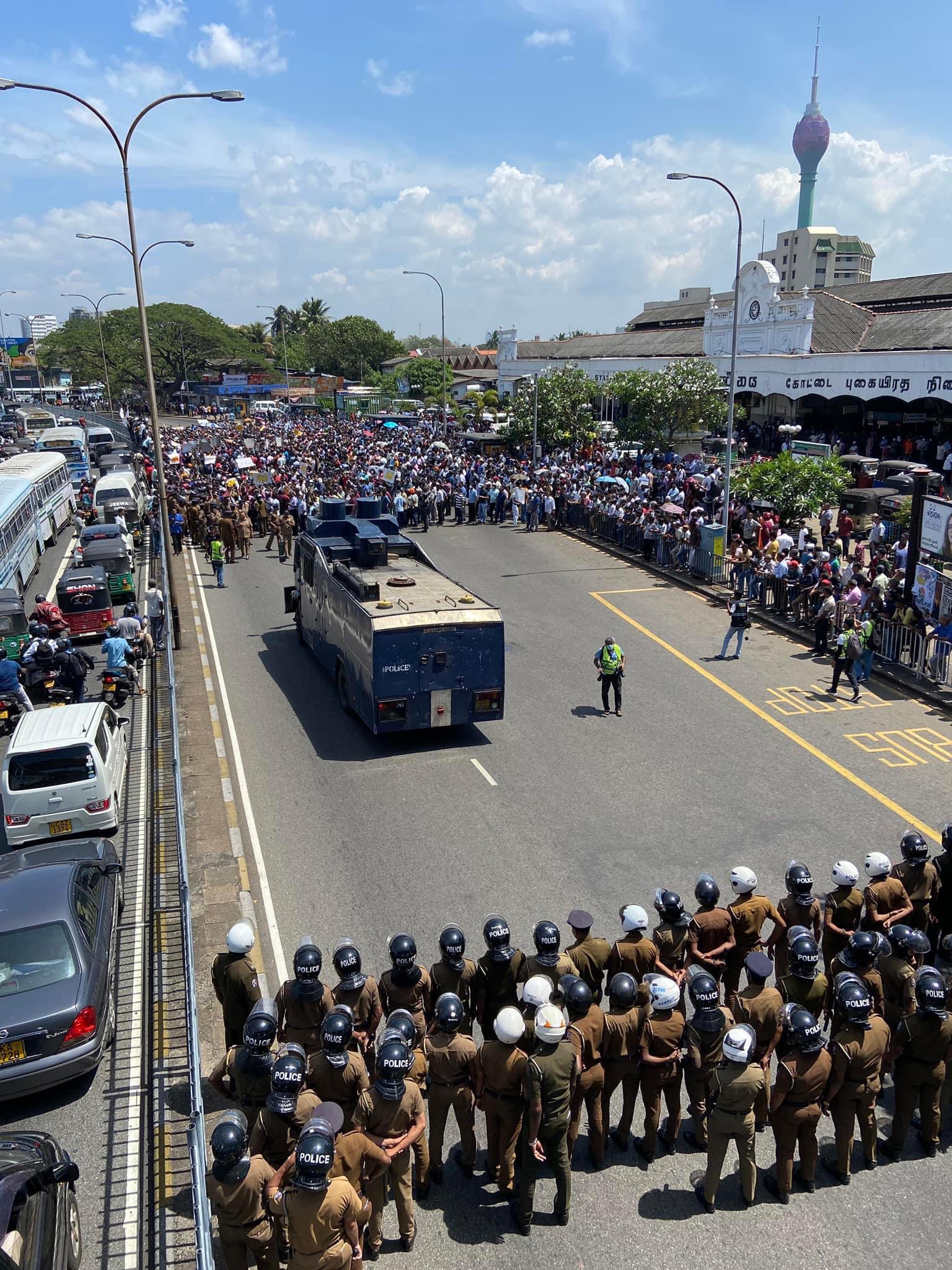Thousands of Sri Lanka’s highly paid state workers protested against tax hikes, citing it as ‘unfair’ with most of them have been caught into the tax brackets for the first time.
The tax hike protest also saw hundreds of private sector workers also gathered in Colombo Fort, demanding a downward revision of the newly implemented taxes.
The protesters later went to a central Colombo Hyde Park to continue their agitation after a court order issued them to clear the area.
Under a theme of ‘Repeal Oppressive Tax Refers’, workers representing 40 trade unions including all private and public sector banks, university lecturers, Port Authority, Ceylon Electricity Board (CEB), Government Medical Officers of Health participated in the protest.
“We don’t mind paying taxes, we know we have to contribute to government revenue,” K L Chandana, representing CEB Engineer’s Union told EconomyNext.
“Moving from one tax bracket to a higher tax bracket is unrealistic, especially with the inflation and global factors. Earlier we were in the green to pay taxes because the country wasn’t in hyperinflation and we had a better quality of life, but our income don’t match with inflation. So there’s no way we can squeeze another expense.”
The ongoing economic crisis has forced President Ranil Wickremesinghe’s government to impose high PAYE and personal income taxes up to maximum 36 percent depending on their income.
A person who paid a tax of 9,000 rupees on a 400,000-rupee monthly income will now have to pay 70,500 rupees as income tax, the latest data showed.
The government took a step back to exempt some allowances partially including for fuel, driver, and vehicle, a government document showed.
“We don’t mind paying fair taxes, we paid them earlier,” Udaya Ekanayake, an Administrative officer from Anuradhapura told Economynext.
“We are opposed to taxation because it is not in line with the economic crisis, inflation is exceeding 50 percent and we are being taxed by 32 percent.”
Meanwhile, the Government Medical Officers Association Media Spokesman, Chamil Wijesinghe said, the protest was the first warning and that if the government fails to respond, the unions will bring the country to a standstill.
“If the government still can’t understand, we are ready to take further actions and we will make the country come to a standstill,” Wijesinghe said.
A renowned actor and a new member of the Ceylon Mercantile Industrial Union Peter d’ Almeida told EconomyNext that the government should bring in higher corporate taxes and taxes on the super-rich reducing the burden on the general public.
“These people had enough of the burden which has been placed on people, with the so-called tax reforms and increased price in utilities, and the general increase in the cost of living,” Almeida told EconomyNext.
“And the sad part is people who ruined this country are still in power and it is people who have nothing to do with this facing the burden of rebuilding the country.
That is unacceptable.”
“A very high cooperate tax and taxes on super rich including wealth and capital gains should be in order.”


